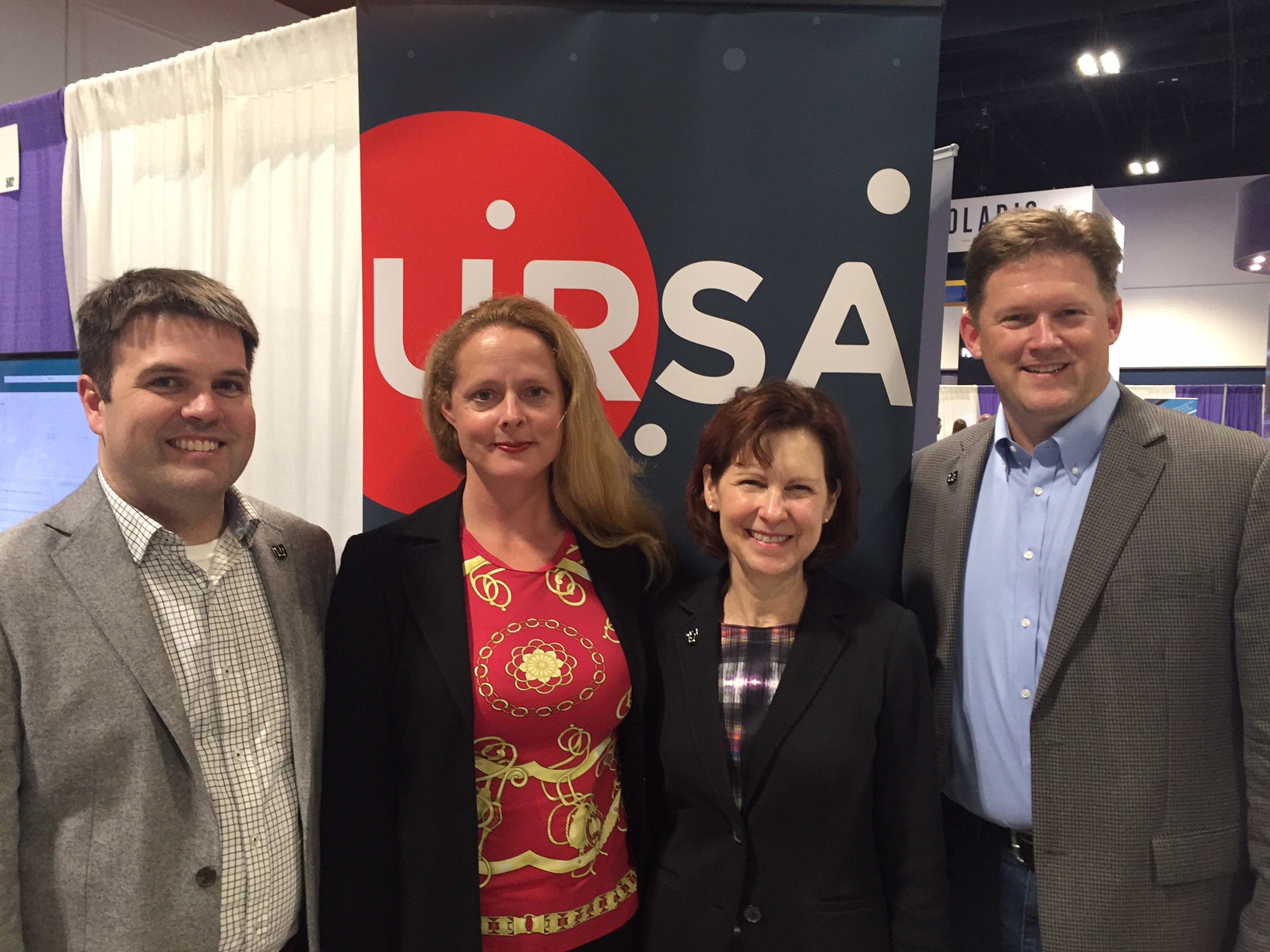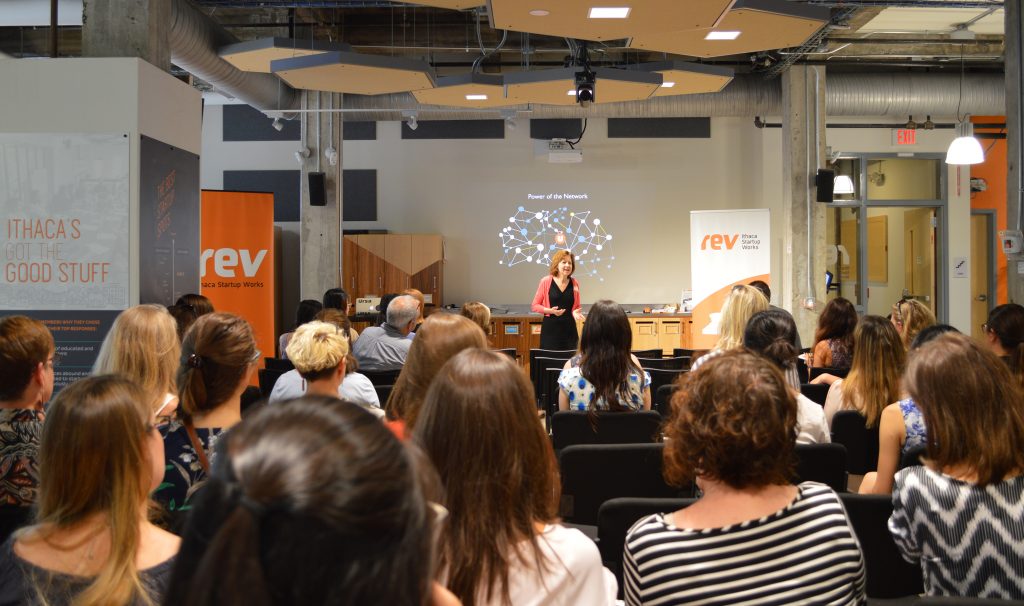
Satellite Startup Raises Funds and Celebrates Women Leaders
Although geospatial intelligence startup Ursa Space Systems examines images taken from space, its two most recent accomplishments are based on something much closer to home: its people. The Rev: Ithaca Startup Works member raised $5.7 million in new venture funding in a round led by RRE Ventures, with participation from Paladin Capital and S&P Global. The company attributes much of its success to its team of talented professionals—a team that celebrates diversity and is proud to share it has also achieved another milestone: gender parity.
Ursa, founded by Cornell University alumni Adam Maher ’06, MENG ’07 and Derek Edinger ’94, MENG ’95 as well as Julie Baker, uses radar satellites, combined with analytics and machine learning, to generate insights into things like crude oil storage in non-OPEC countries and areas of flooding caused by hurricanes. Funder RRE Ventures, along with contributors Paladin Capital and S&P Global, were impressed by a high level of interest from customers in Ursa’s products. The new funding will enable Ursa to accelerate its ability to meet customer demand.
Maher says that in addition, investors “were excited about the level of talent that we’ve built on the team and really wanted us to keep that momentum going.”
He describes Ursa’s growth since its founding in 2014 as “holistic.” The company has concentrated on recruiting not only the world’s best experts in radar engineering and large cloud computing, but also professionals with expertise in marketing and networking. Maher summarizes Ursa’s talent procurement as investing in “everything from engineers to artists.”

This holistic approach to building a company has also paved the way for Ursa to achieve gender parity among its leadership team and near parity across the company as a whole. In its coverage of Ursa’s accomplishment, Forbes Magazine noted it is “the rare technology company that has near gender parity.”
Although hiring and retaining women at all levels was not an explicit goal at Ursa’s start, by hiring women early in the company’s existence, Ursa built a work culture that was welcoming and inclusive. In particular, Maher notes that gender parity has brought more cohesion to Ursa and enhanced its dialogue regarding future directions the company may take.
As far as future plans go, Ursa will continue to concentrate on recruiting great talent and growing aspects of its culture that are attractive to female and male employees alike.
Ursa’s emphasis on people likely stems from its beginnings at Rev, where Maher cites mentorship and community as two of the greatest influences on building the company. Even as Ursa earns millions of dollars in new funding and achieves gender-based milestones that the vast majority of tech companies has yet to achieve, he still seeks the advice of his mentors from Rev.
By Casey Verderosa
